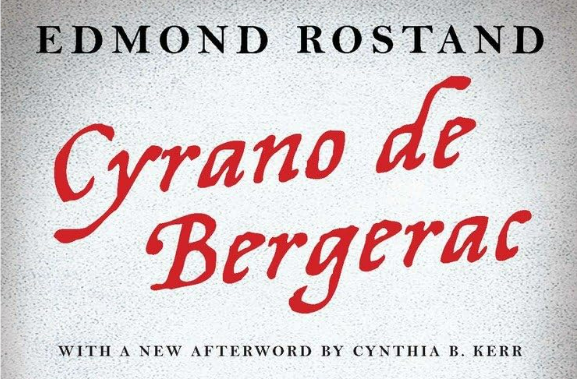Scene 4. X.
byScene 4. X. captures a deeply emotional and tense moment, where Christian urges Cyrano to allow Roxane to choose between them, desiring her love to be directed solely towards his true self rather than the poetic soul of Cyrano. This request leads to a poignant exchange between Cyrano and Roxane, where she declares that her love for Christian would remain unwavering, regardless of his outward appearance. Cyrano, moved by her words, briefly entertains the hope that perhaps she could love him as well, but that hope is swiftly dashed as news of an impending battle interrupts their conversation. The battle’s looming presence serves as a cruel reminder of the harsh reality they all face, cutting short any further exploration of the emotional bond between Cyrano and Roxane.
As Roxane inquires about Cyrano’s distress, the sound of cannon fire signals the start of the battle. In the midst of the chaos, cadets arrive bearing the mortally wounded Christian, shifting the scene from an emotional revelation to a tragic turn of events. Roxane, in her grief, clings to a letter she believes is from Christian, unaware that it was Cyrano’s words that have comforted her husband in his final moments. Cyrano, torn between his duty to his comrades and his unspoken love for Roxane, prepares to face the battle ahead, his internal conflict intensified by the knowledge that he must fight for a cause while keeping his deepest feelings hidden.
Christian’s death scene is one of the most heart-wrenching moments in the narrative. As he dies, Cyrano tells him a noble lie—that Roxane’s love for him was never dependent on his appearance, offering Christian solace in his final moments. This self-sacrificial act by Cyrano ensures that Christian’s last thoughts are filled with love, even if the truth remains concealed. Roxane, devastated by the loss, mourns the intellect and soul she believes to have been Christian’s, not knowing that it was Cyrano who has poured his heart into the letters and words that so captivated her. Cyrano’s ability to protect Roxane’s image of Christian, despite his own anguish, further solidifies his role as the silent, selfless lover whose love was never acknowledged.
With the battle on the horizon, Cyrano is forced to part from Roxane, entrusting her safety to De Guiche. Fueled by a sense of duty and revenge for the fallen, Cyrano rallies his comrades, leading them into battle with a kerchief from Roxane as a symbolic banner of his personal devotion. Despite facing overwhelming odds, Cyrano’s courage and leadership inspire his men, as they charge into the fray with defiance and resolve. This moment encapsulates Cyrano’s undying spirit and loyalty, even in the face of certain danger, highlighting his role as both a poet and a warrior. His determination to fight for what is right, even at the cost of personal sacrifice, serves as a powerful testament to his character.
This chapter in Cyrano de Bergerac poignantly explores the themes of love, valor, and sacrifice. As Cyrano grapples with his love for Roxane and his commitment to his comrades, the narrative captures the tension between personal desires and the greater good. The battle, both literal and emotional, forces the characters to confront their deepest fears and desires, setting the stage for the ultimate test of their courage and loyalty. Through these trials, Cyrano’s unwavering spirit shines, and the profound love he holds for Roxane becomes one of the defining elements of his character. His actions throughout this chapter showcase the enduring power of selfless love and honor, offering readers a timeless lesson in sacrifice and integrity.
The emotional depth of this chapter serves as a reminder of how love and duty are often intertwined, and how the pursuit of honor can sometimes demand the highest personal cost. Studies in psychology highlight that self-sacrificial acts, like those performed by Cyrano, often strengthen interpersonal bonds and elevate the moral character of individuals involved. Cyrano’s journey, filled with emotional complexity and noble acts, underscores the timeless struggle between personal longing and societal duty, making his story an enduring symbol of courage and love. This chapter invites readers to reflect on their own capacity for selflessness and the deeper meanings behind the sacrifices we make for others.


